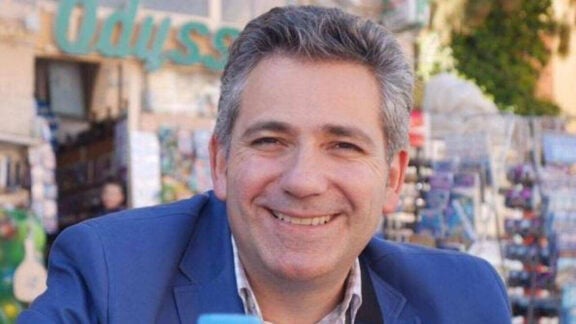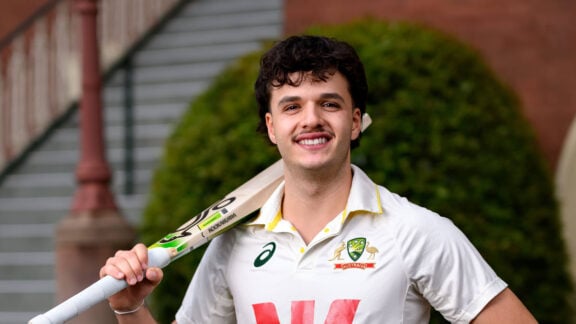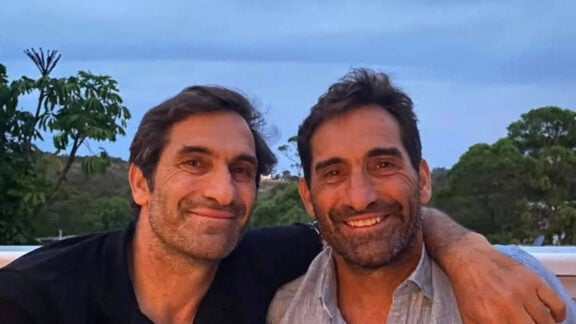South Australian Premier Peter Malinauskas announced a plan to ban children under 14 from accessing social media. Prime Minister Anthony Albanese and the federal opposition inch closer to similar policies aimed at limiting children’s exposure to social media.
There seems a growing consensus that young people have been adversely affected by social media addiction, cyberbullying, and problematic influencers.
In addition to concerns about mental health, there is also the looming threat of online predators.
At the same time, it all could be a line in the sand and any blanket ban could face significant challenges in implementation. Neos Kosmos talked to educators, experts and parents to gauge the community’s response.
The Educators
Speaking to Neos Kosmos, Peter Karamoshos, Principal of St George’s College in Adelaide, voiced his unequivocal support for the ban.
“A hundred per cent! I think that the less our children are on social media, the better,” Karamoshos said.
“They’re just simply not old enough to understand the ramifications of being on social media, such as the impact on their own personal time, but also their interactions. You know, everyone can be very brave from the end of a phone.
“There are adults out there who make it their jobs to try and connect with young people, and it’s dangerous.”
While supporting the initiative, Karamoshos recognises the challenges in enforcing such a ban, particularly among teenagers born into the digital age.
“I haven’t thought through the mechanics of it, it would be difficult. Kids are very bright, they know how to get around technology. But the less time children spend on social media, the better.”Teacher Despina Saranti from St Monica’s College, in Melbourne, also weighed in on the issue, acknowledging that social media is an inescapable part of high school life.
“Social media, in whatever form it takes, is present in every moment of a child’s life in high school,” Saranti said.
She advocated for a discussion on age limits and the development of a framework to protect children from the negative effects of uncontrolled social media use.

“We can’t avoid the mobile phone. Children look for it like they look for the clothes they wear. But it is not the fault of the children themselves who have grown up in a society where technology dominates their lives.
“What I notice in school is that a child’s mood can change in a second with a simple message or post. Because kids have access to their phones at all times, we can’t stop it.”
Saranti acknowledged the positive aspects of social media, noting that “some children have found friendships and no longer feel lonely,” but warned that constant social media use within schools can negatively impact a child’s mood and psychology in an instant.
The Parents
Meanwhile, Dianna Penna, from Melbourne, a mother of three children aged 13, 15, and 17, expressed scepticism about a universal ban.
“We try to be close to our children, to advise them so they can recognise the dangers and pitfalls behind social media,” Penna told Neos Kosmos.
“We also make sure they have a ‘busy’ schedule so that there is no time for them to be constantly on their phones. We are there for our children as much as possible, we are interested in their friendships and activities.”
Penna fears that a ban could have unintended consequences.
“If you tell the child not to do something, the child may react. They may feel isolated and cut off, and this may affect them mentally.
“When you talk to your child, when you have a good relationship with them, I don’t think the ban is necessary.”
Alex, a mother of two boys aged eight and 13 said she was thankful that someone is finally doing something about social media in children’s lives.
“Social media has been on my mind for the past six months,” she told Neos Kosmos.
She and her partner, allowed their 13-year-old to have a phone and download Snapchat to communicate with his friends when he started high-school.
Not knowing much about this social network, after downloading it herself, she says that she regrets ever allowing it.
“I don’t think any child should be on social media under 18.”
The concerned mother said she is in the process of finding another way for her son to communicate with his group of friends, that is not through social media.
“I think it is very important that kids are in touch with other kids and we have to accept that we live in a digital world,” Alex said.
“I’ve limited Snapchat so that he doesn’t have it all the time. He is allowed to use it only to communicate with his friends, so no strangers, but I don’t like it.
“I think none of the kids should have it, because it gives them access to anything and everything.”
The Experts
South Australian lawyer and Neos Kosmos contributor Matthew Karakoulakis echoed similar concerns, particularly around enforcement.
“The proposed social media ban for kids under 14 in South Australia comes with some real challenges, particularly around how it would actually be enforced,” said Karakoulakis.
“For a ban to work, stricter age verification, like ID checks or parental consent, would likely be needed. But that’s easier said than done.”
Karakoulakis also emphasised the need for consistent parental oversight and pointed to the potential legal ramifications of restricting children’s rights.
“Many kids could still find ways around it using fake accounts or VPNs,” he noted.
“Legally, there’s also the issue of restricting children’s rights to access information and express themselves online.
“While it’s important to keep them safe, an outright ban could be seen as overstepping, especially since social media can also be a platform for learning and positive connection.
“Dr Foula. Z. Kopanidis, Associate Professor of Marketing at RMIT University told Neos Kosmos that the pending legislation “appears a band aid reactive response”.
“There appears to be an undercurrent of blame focussed on pre-teens online behaviours and inadequate/poor parental supervision. Social media is an inherent part every day aspect of this generation’s lives.
Like others above, she too voiced concern that teens will find ways to override any impediment to social media use.
“By banning social media platforms till a certain age will not deter this cohort from finding ways to overcome technological restrictions,” said Dr Kopanidis.
She also warned of the potential of activity going underground if a blanket ban was imposed.
“A troubling outcome is driving social media activity underground to less desirable online spaces that may pose even more potential harm,” said Dr Kopanidis.
In the face of growing concerns, the debate around banning social media for children under 14 is far from settled, with the challenge of balancing safety and freedom likely to create policies – one that may be popular on the one hand yet, difficult to implement.








